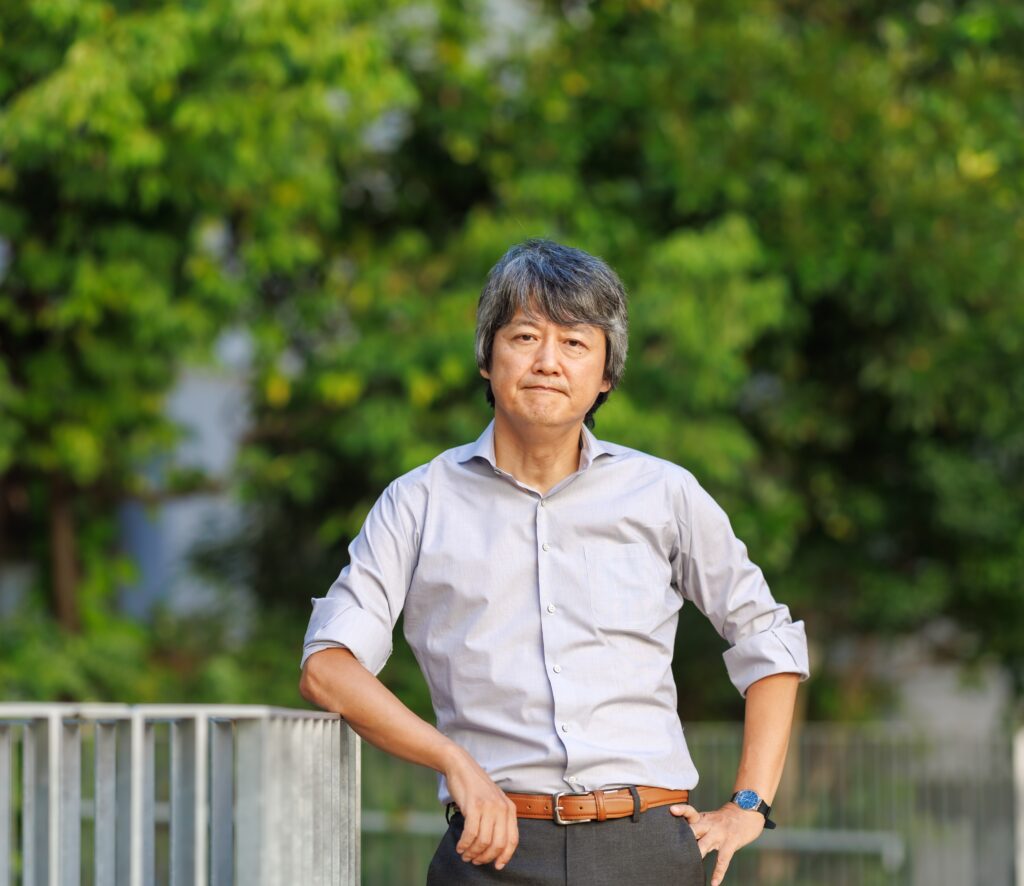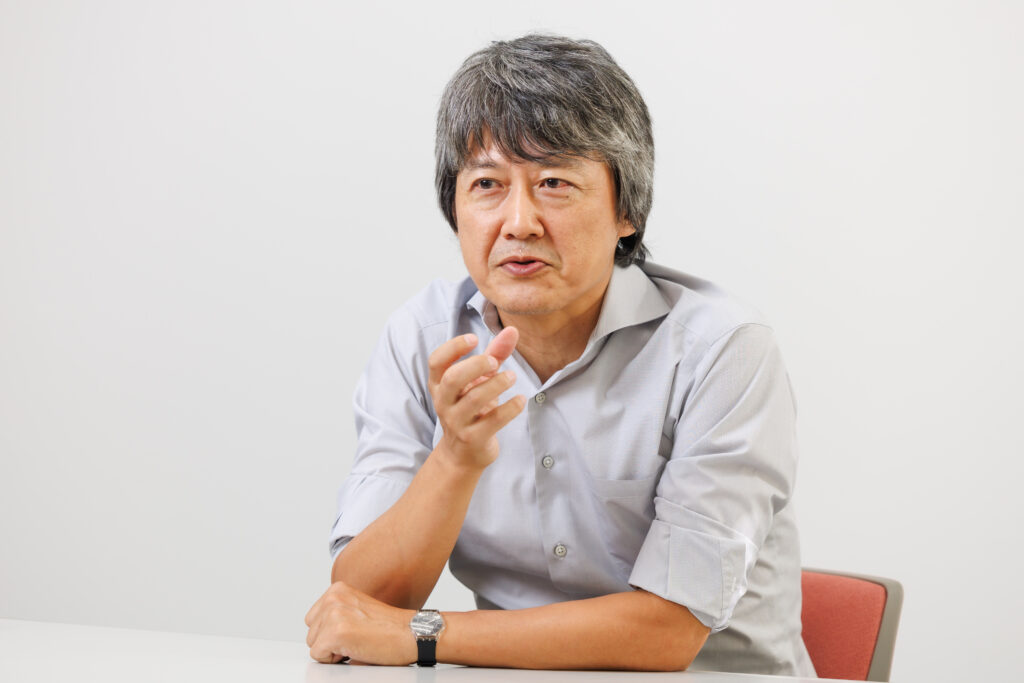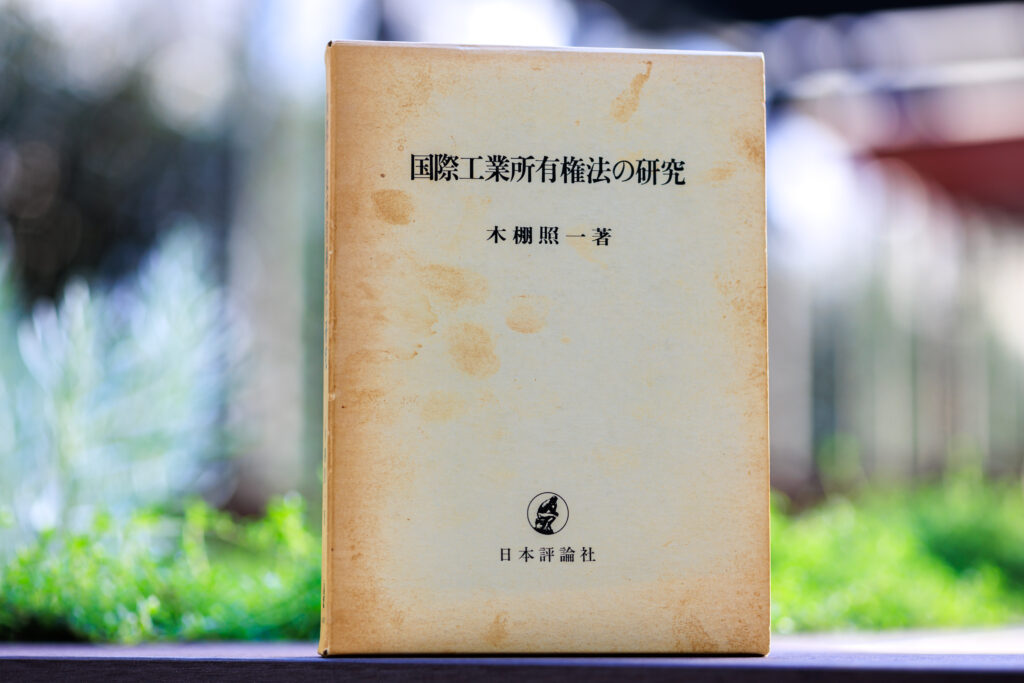
Intellectual property refers to intellectual works, trademarks, and such created by people. Professor Yasuto Komada from the Faculty of Law explains how we can protect intellectual property in a society that is changing rapidly due to globalization and digitalization.
I specialize in intellectual property law. There is no actual law by this name, but intellectual property law refers to laws that protect intellectual property, such as the Patent Act, Copyright Act, and Trademark Act.
Compared to the Constitution, Civil Code, and such, intellectual property law can be said to be a field that changes rapidly, as laws and their interpretation are pressured to be updated whenever there is technological innovation or new cultural phenomena.
Appropriateness of territoriality principle for patents in handling modern issues

For example, in my recent research, I handled the issue of patent infringement related to inventions using the internet. Patents are rights protecting inventions and must be obtained for each country and can only be enforced in countries where patents have been obtained.
If Company A has a product with a patent in Japan, it is an infringement if Company B manufactures and sells it without permission in Japan, but not so if B manufactures and sells it overseas. This is called the principle of territorial jurisdiction.
In recent years, though, we often see cases where Company X has obtained a patent in Japan for an online service, but Company Y provides an identical service to users in Japan. Common sense would say this is an infringement, but what if Y asserts that there is no infringement on the patent in Japan as Y’s system uses servers in the United States? Simply applying territorial jurisdiction will lead to impunity for Y.
A famous case is the patent lawsuit involving Niconico Douga. The function of streaming comments across the screen is patented by the company that operates Niconico Douga, but Tokyo District Court did not recognize an infringement as the servers of the company copying this function were located in the United States.
However, in 2023, the Grand Panel of the Intellectual Property High Court demonstrated a relaxed interpretation of territorial jurisdiction and reversed the ruling in favor of Niconico Douga.
Seeking interpretations of intellectual property laws befitting the changes of the times
I think it is meaningless to be preoccupied with the principle of territorial jurisdiction for inventions related to the internet. Servers can be located in any country. This is the time for us to graduate from this principle and for users to change and follow the intellectual property laws of even more places.
There are other issues arising recently. If a bag that is an exact replica of a famous brand is sold in online virtual spaces (metaverse), can we enforce the trademark rights of our physical world? If we use artificial intelligence (AI) to synthesize a voice that resembles that of a certain singer and make an avatar in the metaverse sing using this voice, can we be said to be infringing on the rights of that singer?
The intellectual property laws of many countries were written based solely on intellectual property in the real world, and there is no mechanism to deal directly with such new issues.
Now is the time for intellectual property laws to transition from existing concepts to new ones. However, this is not an easy task.
Unlike mathematics, there are no absolutely correct answers in law. A law becomes justified when many people believe it is correct. This is why legal studies is said to be the study of persuasion. Researchers of intellectual property laws are required to derive interpretations that befit the times and are capable of convincing many people.
The book I recommend
“Kokusai Kogyo Shoyukenho no Kenkyu”(Research on International Industrial Property Rights Law)
by Shoichi Kidana, Nippon Hyoron Sha

When I was a graduate student, I decided to specialize in intellectual property rights while researching private international law. However, I felt suffocated by the monotony of the principle of territorial jurisdiction. That was when I came across this book. It became the basis of my thinking and paved the way for me.
-
Yasuto Komada
- Professor
Department of International Legal Studies
Faculty of Law
- Professor
-
Graduated from the School of Social Sciences, Waseda University, and received his Ph.D. in Law after completing the postgraduate program in Law at the Graduate School of Social Sciences, University of Tsukuba. Took on several positions—such as research associate at The University of Tokyo’s Institute of Socio-information and Communication Studies, lecturer at Gunma University’s Faculty of Social and Information Studies, and associate professor at Sophia University’s Faculty of Law—before assuming his current position in 2013.
- Department of International Legal Studies
Interviewed: August 2023